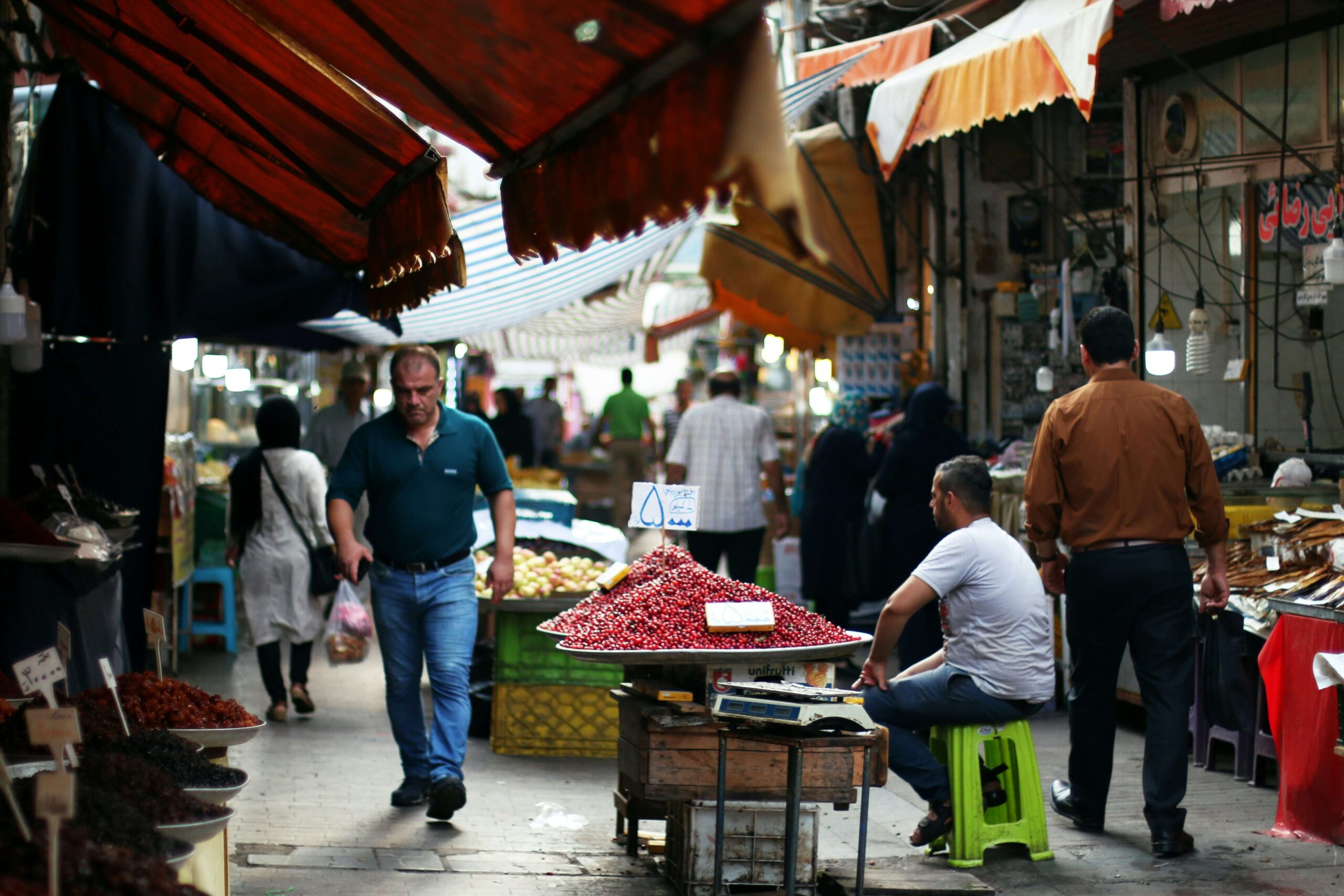Small businesses are the backbone of Syria’s economy, providing essential goods and services while creating jobs in communities across the country. From local shops and family-run farms to small manufacturing units, these enterprises help sustain economic activity even in challenging times. They not only support household incomes but also strengthen local supply chains and encourage entrepreneurship. As Syria works toward rebuilding and revitalising its economy, small businesses remain a vital force for growth, resilience, and long-term stability.
What Drives Syria’s Economy?
Syria’s economy is driven by a mix of traditional industries, emerging sectors, and reconstruction-related activity. Agriculture remains a cornerstone, with crops such as wheat, barley, cotton, and olives supporting both domestic needs and export markets. Manufacturing, particularly in textiles, food processing, and cement, plays an important role in supplying local demand and generating trade revenue. The country’s oil and gas resources, though reduced in recent years, continue to contribute to government income and energy supply.
In recent times, small and medium-sized enterprises (SMEs) have become increasingly important, providing jobs, sustaining local commerce, and supporting community-level economic resilience.
What Are the Key Sectors In Syria For Small Businesses?
Agriculture, light manufacturing, and the service sector, particularly commerce and retail, are important industries for small enterprises in Syria. Furthermore, there is promise in tourism and hospitality, particularly in light of the nation’s historical landmarks. Along with technology and digital services, the energy and natural resources sectors are also experiencing a resurgence in interest.
What Challenges Do Small Businesses Face in Syria?
Small businesses in Syria face a range of challenges that can limit their growth and long-term stability. Economic uncertainty, driven by years of conflict and fluctuating market conditions, creates a difficult environment for planning and investment. Access to financing is often limited, with many entrepreneurs relying on personal funds or informal lending due to strict banking regulations and a lack of tailored credit options.
How Do Small Businesses Contribute to Syria’s Economy?
Despite obstacles including restricted access to capital and the effects of sanctions, small businesses, in particular, Micro, Small, and Medium-sized Enterprises (MSMEs), are vital to Syria’s economy because they create jobs, promote social cohesion, and boost GDP. They have demonstrated incredible adaptability to the post-conflict environment and are an essential component of the private sector.
Which Industries Rely Heavily on Small Businesses In Syria?
The sectors in Syria that depend on small and medium-sized businesses (SMEs) the most include professional, scientific, and technological endeavours, lodging and food services, and wholesale and retail trade. Especially in the service industry, a significant percentage of these SMEs are family-owned companies that frequently hire close friends or family members. Additionally, SMEs are important in the industrial sector (particularly in textiles), agriculture, and several types of construction.
How Is the Syrian Government Supporting Small Businesses?
The Syrian government has introduced several measures aimed at supporting small businesses, recognising their role in job creation and economic stability. These efforts include offering tax incentives and reduced fees for newly established enterprises, particularly in priority sectors like agriculture, manufacturing, and local services. In some cases, small businesses can also access subsidised loans or microfinance programs designed to improve access to capital for entrepreneurs who might not qualify for traditional bank financing.
What Is the Future Outlook for Small Businesses In Syria?
The future outlook for small businesses in Syria is cautiously optimistic, shaped by both opportunities and ongoing challenges. As the country continues its gradual reconstruction, demand for local goods, services, and skilled labour is expected to rise, creating space for small enterprises to expand. Sectors such as agriculture, food production, retail, and construction-related services are likely to see the most growth.
Improved access to finance, technology, and training could further enhance their competitiveness. However, long-term success will depend on greater economic stability, continued infrastructure development, and sustained government and private-sector support. With the right conditions, small businesses could play a central role in driving Syria’s economic recovery and fostering resilient local economies.



